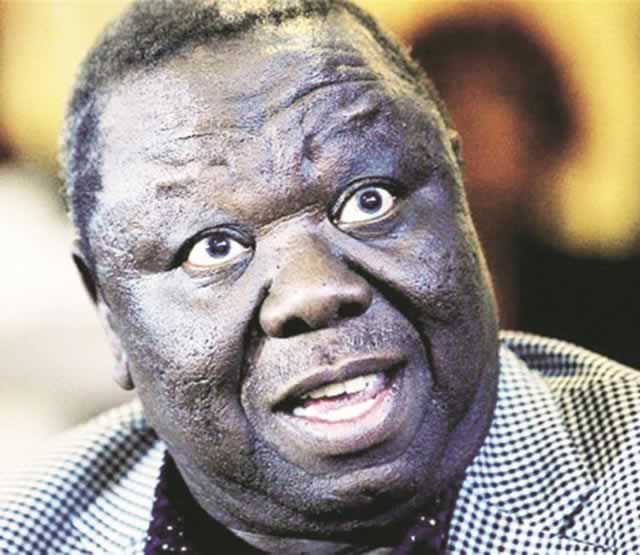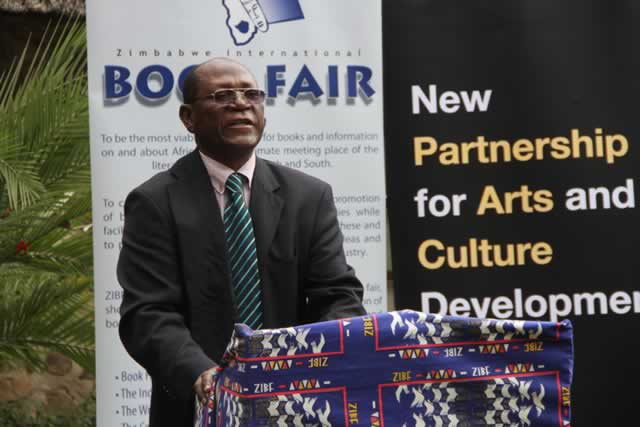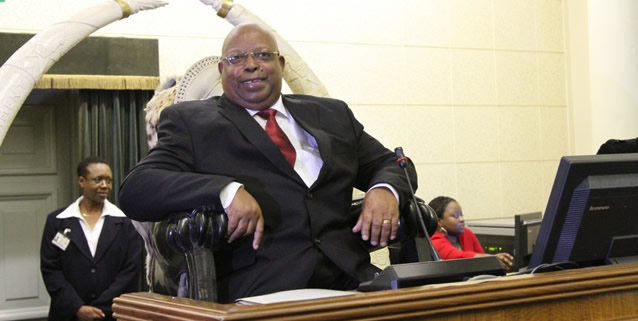Halo over Tsvangirai is gone – forever


Tsvangirai is lost to the flair of the time and exposed himself badly during his recent London visit
Tichaona Zindoga Snr Political Writer
Why would the so-called international community waste its time and talents focusing on Zimbabwe when there are hotter and more deserving issues such as Gaza, Ukraine, Boko Haram, Iraq, Libya, Syria and so on?
From a very pedestrian point of view, the recent visit to the United Kingdom by opposition leader Morgan Tsvangirai was nothing to write home about.
That cannot be gainsaid.
However, if one were to look at it from the perspective of certain qualitative aspects, a review of the trip would expose it as a disaster by revealing what Tsvangirai has become, post-July 31, 2013.
Whatever halo Tsvangirai had is gone.
From the symbolism of the venue, the timing, content, media coverage and general reviews, Tsvangirai’s trip is easily forgettable and effectively marks the fall of the once much touted politician.
Britain, which is credited for hatching and nursing the MDC since 1999, has always been Tsvangirai’s favourite hunting ground, which not only yielded some of his most ardent supporters.
The UK has been the hotbed of the politics of the Diaspora and the MDC could lay claim to this constituency.
That is, even if one were to note that a good number of those in the Diaspora played, and literally possessed, the MDC card, for selfish, economic reasons.
Tsvangirai’s visit to the UK thus had the characteristic, preordained success of a captive crowd in supporters, media and the UK government.
(One can retort that he was the captive of these audiences!)
Not so this time: Tsvangirai’s visit was significantly muted, unfortunate even.
He was not on BBC, the reason being, we are told, that he turned down an offer because he feared that he would be roasted on The HardTalk programme; roasted about the loss on July 31, the split and the future of the MDC.
Elsewhere, The Guardian’s latest piece on Tsvangirai is an ominous “Morgan Tsvangirai failed Zimbabwe, and now he must go” written by Simon Allison on April 30.
The Telegraph last carried a piece on Tsvangirai on June 22, 2008; which was a profile of him, the timing obviously significant.
Having won the first round of the presidential election that year, Tsvangirai stood on the threshold of ruling Zimbabwe.
He, however, claimed he was withdrawing from the presidential election run-off at the eleventh hour upon seeing how a hitherto slumbering Zanu-PF had galvanised for the run-off.
A whitewash was imminent and was duly delivered because at law, Tsvangirai’s purported withdrawal was a nullity.
From then on, the Telegraph has not written about Tsvangirai.
The Express newspapers, which have been generous with Tsvangirai over the years – and they have nine articles between March 16, 2013 and August 16, 2013 – did not pay any attention to him on his latest UK visit.
By the way, this is the newspaper that on July 29, 2012, a full year before the elections, announced that, “Robert Mugabe’s grip on power is finally at an end”.
The writer of the story, Marco Giannangeli, told the world that, “The revelation emerged after Prime Minister Tsvangirai completed his visit to New Zealand PM John Key.”
The “revelation”, by all means!
Thus ignored by the “mainscream” media in the UK, even the local pliant media found it hard to frame the visit, which also was anything but sensational on the social media.
Tsvangirai would not meet any top Government official, the best he could muster being the Lord Mayor of Birmingham.
Then there was the very critical point of meeting the grassroots supporters.
His Birmingham rally, which also got along with a fund-raiser, got a paltry crowd that is being put below 100 while the funds raised are in the region of 300 pounds sterling.
That about sums the sorry story of a broke party and its broken leader.
Thank goodness he was not pelted with eggs, as earlier feared, and that his unsettled wife Elizabeth was conveniently available in the run-up to, and during, this ill-fated tour.
Timing, content
In politics timing is important and could be everything.
Our Tsvangirai embarked on the UK tour at a very symbolic time – the anniversary of the last elections which he lost dismally.
Addressing one of his most important constituencies at this juncture was supposed to be hugely symbolic and possibly provide a historical marker for Tsvangirai and the opposition movement in the country.
One would have expected the opposition leader to show that he had sufficiently mourned July 31 and was ready to play his role as the alternative ruler with a view to winning in four years’ time.
One would have expected that Tsvangirai would flaunt his JUICE as a workable alternative policy plan in light of, as he likes to see it, a failing Zim-Asset.
He should have left the world convinced that this man, who had been “robbed’’, was going to hold fort and reclaim his “stolen’’ destiny.
Tsvangirai did the opposite.
He whined when he should have been winning hearts.
He perspired when she should have inspired.
He complained about a theft none but himself only saw, never his fallibility or the vacuity of the MDC-T message, which Tendai Biti told us did not resonate with the woman in Chiendambuya.
With the kind of rigmarole Tsvangirai was giving, many people would naturally wait for the “Way Forward” part – and it was all disappointment.
“Since January,” he said, “when the crisis began to take root, I have been calling for a national discussion by a cross-section of stakeholders to deliberate on the country’s problems and chart the way forward … An internationally brokered national dialogue of all stakeholders would be a good starting point to avert the national crisis gripping the nation.”
This was most unfortunate.
It is known that, shorn of all the glory of the inclusive Government where he was prime minister and now facing uncertainty, Tsvangirai’s only solution to his woes has been to wish for the good old days he used to drink tea with President Mugabe and had all the trappings of borrowed power.
The future is a reality he does not want to face.
He chooses to bury his head in the sand of the past.
And it is inconceivable that Tsvangirai thought, or still thinks, that he can drag the world – the international community – into his little games.
Why would the so-called international community waste its time and talents focusing on Zimbabwe when there are hotter and more deserving issues such as Gaza, Ukraine, Boko Haram, Iraq, Libya, Syria and so on?
Sadc has moved on, and duly removed Zimbabwe as an agenda item and thrust it into leadership.
Not only that, Sadc is making Zimbabwe the regional chair, ditto the African Union.
On June 17, the European Union Ambassador to Zimbabwe, Aldo Dell Ariccia, gave a crucial speech, which apart from telling us how the EU has moved on in the case of Zimbabwe, could be used to deflate some of Tsvangirai’s claims at Chatham House.
He said there was no leadership crisis in the country, which Tsvangirai belabored in his presentation, “because we have the same people we have in the party and Government”.
He chastised civil society, an opposition appendage, saying he had “the impression that you are a little bit anchored to the past”.
He advised that, “if you start catching the flair of the time, the trend, there is an opening to be worked upon”.
Tsvangirai is lost to the flair of the time and he exposed himself in London.
And it is quite sad that in his concluding remarks Tsvangirai evokes images of the sunset, which, to all intents and purposes, apply to him as he does not appear any closer to “unshackling the dark and grisly chains” that tie him to the “despicable fate” of being the near man of Zimbabwe’s politics.
The halo has just worn off Morgan Tsvangirai.









Comments